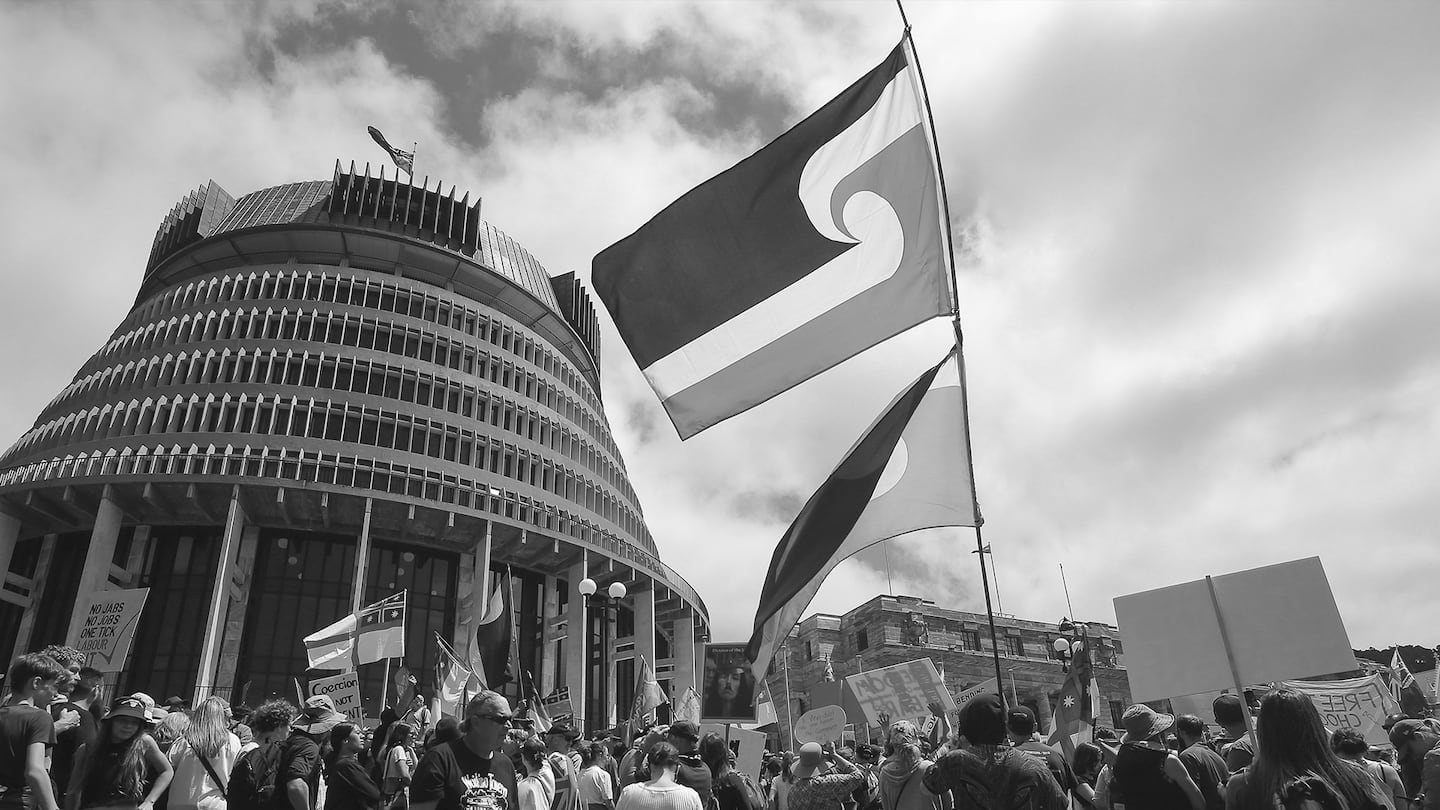Te Matatini and Whānau Ora are the only two recipients of new funding in the Māori affairs sector, as Te Pūni Kōkiri/the Māori Development Ministry also faces $18 million of expenses cut for the 2024/25 fiscal year.
But the Whānau Ora increase – intended for non-government commissioning agencies - is about the same as the reduction in departmental expenses.
These are just some of the revelations from the coalition government’s budget published this afternoon, which also featured a new tax calculator showing the coalition’s flagship tax cut policy will benefit Pākehā more than Māori.
Unusually, this government budget outlines both new government commitments as well as baseline savings and revenue.
The Māori development section of the Budget’s summary of initiatives only features a “savings” section, with no new government commitments.
Speaking to media this morning, Finance Minister Nicola Willis said this budget would be “doing more with less”.
She pointed out priorities of health, education and law and order where two thirds of the budget would go.
“This is a budget that delivers for Māori because when a New Zealander turns up to an emergency room or a school, they don’t turn up thinking about their ethnicity.”
The following is an overview of major points from the Budget.
Hauora Māori
The delivery of hauora Māori services will receive $39 million for the coming year for commissioning and development of Hauora Māori, a service which would have been administered by the soon-to-be-disestablished Te Aka Whai Ora / Māori Health Authority.
Treasury officials told Te Ao Māori News that frontline hauora Māori services would receive a $40 million increase but directed us to Te Whatu Ora / Health New Zealand for more specificity.
Māori tax cuts
A working couple earning the median Māori income ($50,238 for the year ended June 2023) with no kids and no superannuation will get $70.13 per fortnight, and $1,823.50 per year returned in tax cuts.
But a couple earning the median Pākehā (NZ European) income ($60,790 for the year ended June 2023) with the same parameters will get $101.50 per fortnight, roughly 1.4 times the tax cuts for the median working Māori couple.
“Our package intentionally targets low-and middle-income families with children,” Willis justified.
“This is the first time personal income tax has been reduced since 2010.”
Government savings of $3.71 billion will be used to fund $3.68 billion of tax relief for the coming year.
You can see how much you’ll receive in tax cuts at www.budget.govt.nz/taxcalculator.
Te Matatini
Although Te Matatini funding has been extended through to the 2027/28 budget, for a total investment of $49 million over that time, it will see a slight annual decrease, from a little over $17 million to a little over $16 million.
“I’ve kept my promise to Tama Potaka on that one,” Willis told media.
“Our government is proud to have found funding of $49 million to support Te Matatini and bring kapa haka to life in the regions.”
Infrastructure
No new funding has been announced for infrastructure projects on the east coast of Te Ika a Maui (the North Island) as part of a Regional Infrastructure Fund but a road restoration project will be part of more than a billion dollars of cyclone recovery funding.
The fund was part of New Zealand First’s coalition agreement with National, and includes projects for Northland, Bay of Plenty, Waikato, Greater Wellington, and almost every region in Te Wai Pounamu (the South Island).
Some $27 million has also been allocated to clean up forestry debris, commonly called ‘slash, but the budget was light on details about exactly how this would be implemented.
Whānau Ora
Whānau Ora’s budget to spend on non-government commissioning agencies will go from $181.7 million to $182.3 million for the coming fiscal year but will see $1 million taken out of its departmental expenses for the same period.
Matariki
The coalition has almost halved the amount of money available for Matariki public holiday activities, cutting 45 per cent of the arts, culture and heritage funding for the day.
Update: A previous version of this article said Whakaata Māori was getting a funding increase, using reallocated money from Te Māngi Pāho. In actuality, that money would have been allocated to Whakaata Māori by Te Māngai Pāho in a mixed-funding model. Whakaata Māori will actually receive a funding cut.


